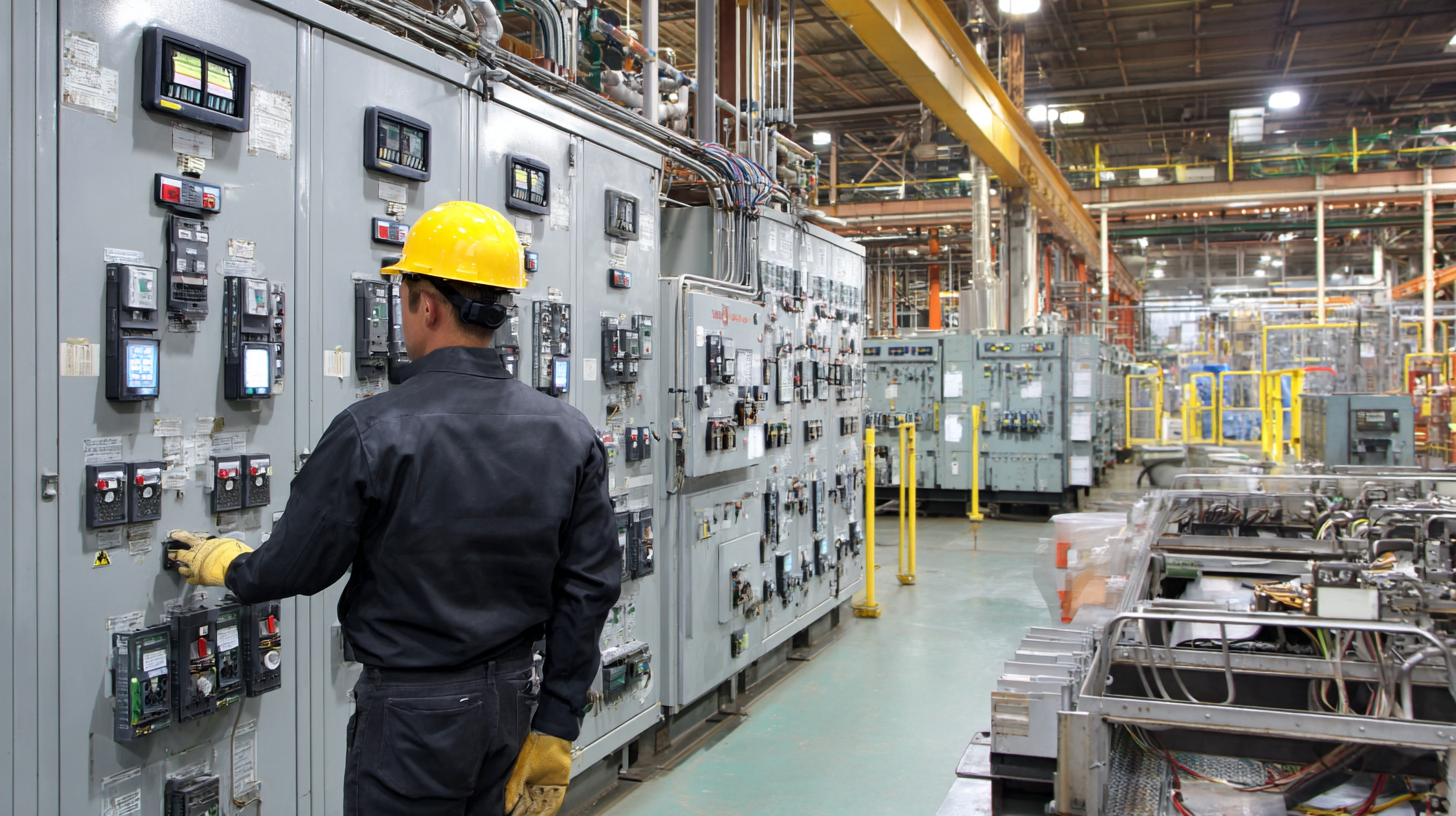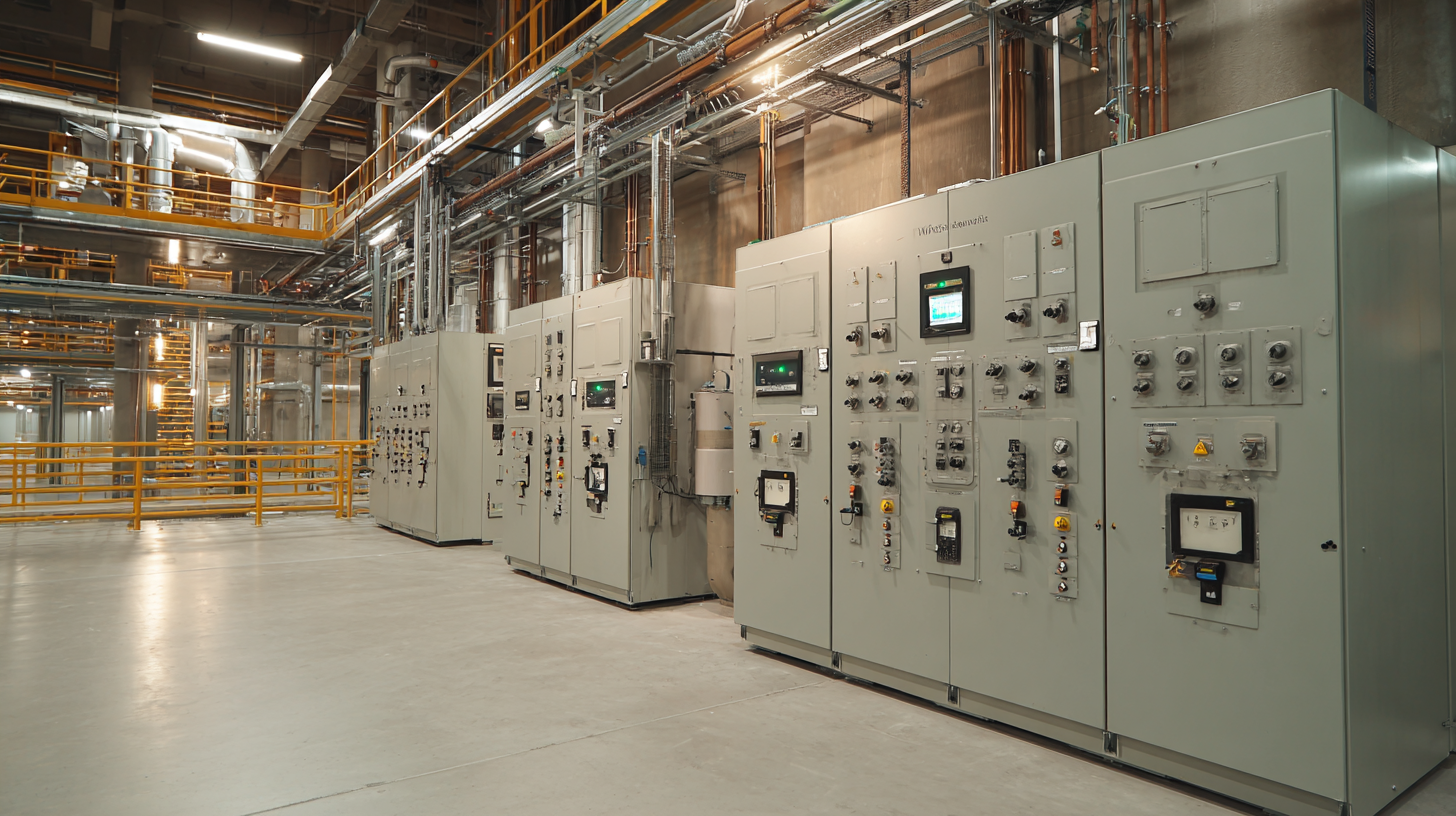
-
Home
-
Products
-
Application
-
Documents
-
News
-
Blog
-
Blog
-
Sinsegye
Leave Your Message
-
Wechat OA

-
 Baijia Hao
Baijia Hao



 Baijia Hao
Baijia Hao

In the ever-evolving landscape of industrial automation, Rockwell Automation Drives stand out as critical components that enhance operational efficiency and productivity across global manufacturing sectors. According to a recent report by MarketsandMarkets, the industrial automation market is projected to grow from USD 191 billion in 2020 to USD 296 billion by 2026, reflecting a significant shift towards smart manufacturing and the integration of advanced technologies. Rockwell Automation, recognized for its innovation and reliability, plays a pivotal role in this transformation by providing state-of-the-art drive solutions that optimize performance and energy consumption. This blog will delve into the detailed technical specifications of Rockwell Automation Drives, showcasing their capabilities and the best practices for implementation, ensuring that manufacturers can harness their full potential in a competitive environment.

 In the realm of global manufacturing, the role of import and export certifications has become increasingly significant. As manufacturers seek to broaden their market reach, understanding and acquiring the necessary certifications is crucial in navigating the complexities of international trade. The robust growth in issuance of export certificates in regions like Abu Dhabi highlights this trend, indicating that businesses are prioritizing compliance to access new markets.
In the realm of global manufacturing, the role of import and export certifications has become increasingly significant. As manufacturers seek to broaden their market reach, understanding and acquiring the necessary certifications is crucial in navigating the complexities of international trade. The robust growth in issuance of export certificates in regions like Abu Dhabi highlights this trend, indicating that businesses are prioritizing compliance to access new markets.
Tip: Always ensure your products align with international standards and obtain relevant certifications before pursuing new markets. This proactive approach not only facilitates smoother customs processes but also enhances the credibility of your brand in the eyes of potential partners and consumers.
Moreover, countries such as Vietnam are evolving their strategies to embrace sustainability and digital innovations in exporting, meeting the rising global standards. As technical barriers tighten, manufacturers must remain agile and adaptable in their operations to ensure compliance.
Tip: Regularly update your knowledge on changing import and export regulations and certifications in your target markets. Creating a comprehensive checklist can streamline your processes and help avoid delays that could hinder your competitive edge.
When it comes to trading Rockwell Automation drives globally, understanding the key regulatory standards is essential for compliance and success. Various countries have implemented strict guidelines to ensure both safety and efficiency in their manufacturing processes. These regulatory frameworks often include certification requirements, environmental standards, and quality assurance protocols. For instance, complying with the International Electrotechnical Commission (IEC) standards is pivotal for manufacturers seeking to enter European markets. These standards not only ensure product safety but also streamline the processes for trade and market entry.
Moreover, each region may have specific regulations that affect how Rockwell Automation drives are manufactured and sold. In the United States, adherence to the National Electrical Manufacturers Association (NEMA) standards is vital. These guidelines specify the necessary performance metrics and energy efficiency ratings, which can significantly impact the marketability of the drives. Understanding these compliance requirements can help manufacturers optimize their production lines, ensuring that their products meet international expectations while enhancing their competitive edge on the global stage.
In today's fast-paced manufacturing landscape, compliance plays a vital role in enhancing supply chain efficiency and improving market access for organizations, particularly in the realm of automation. According to a recent report from the Compliance Institute, companies that prioritize adherence to regulations see a 20% increase in operational efficiency compared to those that do not. This is especially critical for facilities focused on Rockwell Automation drives, where stringent compliance requirements can streamline processes by minimizing delays and ensuring that products meet international standards.
Moreover, the World Economic Forum highlights that robust compliance frameworks not only boost efficiency but also enhance a company's market reach. In fact, 78% of businesses with comprehensive compliance measures reported improved access to new markets, as potential partners and clients feel more secure engaging with a trustworthy supplier. As manufacturing firms navigate complex regulatory environments, the integration of automated solutions, such as those provided by Rockwell Automation, further bolsters compliance efforts, allowing for real-time monitoring and adjustments that keep operations aligned with evolving standards.
| Dimension | Description | Impact on Supply Chain Efficiency | Market Access |
|---|---|---|---|
| Regulatory Compliance | Adherence to local and international regulations | Enhances operational efficiency by minimizing disruptions | Facilitates smoother entry into new markets |
| Quality Standards | Implementation of ISO and other quality standards | Reduces waste and rework, increasing throughput | Enhances brand reputation and market acceptance |
| Supplier Compliance | Ensuring suppliers meet compliance requirements | Improves supply chain reliability and reduces risks | Broadens the range of potential suppliers |
| Technology Integration | Use of automation and data analytics | Streamlines processes and reduces lead time | Enables faster adaptation to market changes |
 Navigating the certification processes in the manufacturing sector can often feel like walking through a maze. For producers of top Rockwell Automation drives, meeting rigorous industry standards is not just a bureaucratic hurdle; it is essential for ensuring product quality and gaining market trust. The primary challenge lies in understanding the varying certification requirements across different regions and industries. Each certification can involve distinct criteria, documentation, and testing protocols that can significantly delay time-to-market if not properly managed.
Navigating the certification processes in the manufacturing sector can often feel like walking through a maze. For producers of top Rockwell Automation drives, meeting rigorous industry standards is not just a bureaucratic hurdle; it is essential for ensuring product quality and gaining market trust. The primary challenge lies in understanding the varying certification requirements across different regions and industries. Each certification can involve distinct criteria, documentation, and testing protocols that can significantly delay time-to-market if not properly managed.
To effectively tackle these challenges, manufacturers should adopt best practices that streamline the certification process. First and foremost, investing in training for personnel on the specific guidelines of relevant certifications can prove invaluable. Furthermore, fostering strong relationships with certification bodies can facilitate clearer communication and faster response times for queries and submissions. Lastly, utilizing advanced project management tools can help track progress, manage deadlines, and ensure that all necessary documentation is meticulously prepared and submitted. By implementing these strategies, manufacturers can not only navigate the complexities of certification more efficiently but also enhance their overall production processes and product reliability.
In the evolving landscape of global trade policies, the automation industry is witnessing significant shifts that have profound implications for equipment certifications. Recent trends indicate that the tightening of regulations across various countries is pushing manufacturers to rethink their compliance strategies. For instance, according to a recent industry report, the global market for automation equipment is projected to reach $300 billion by 2025, driven largely by advancements in technology and the need for efficient manufacturing processes. However, navigating the complexities of certification across different regions poses challenges that require adaptable solutions.
Additionally, the rising costs of components, mirroring trends seen in the aerospace sector, are further complicating the supply chain. Reports indicate that prices for critical spare parts are escalating at a rate that exceeds the agility of many companies to adapt. This inflationary pressure not only affects the bottom line but also prompts manufacturers to invest in more localized production capabilities to mitigate risks associated with global supply chains. Consequently, the intersection of trade policy, compliance, and cost dynamics will be crucial for businesses as they strive to maintain competitiveness in this rapidly changing marketplace.